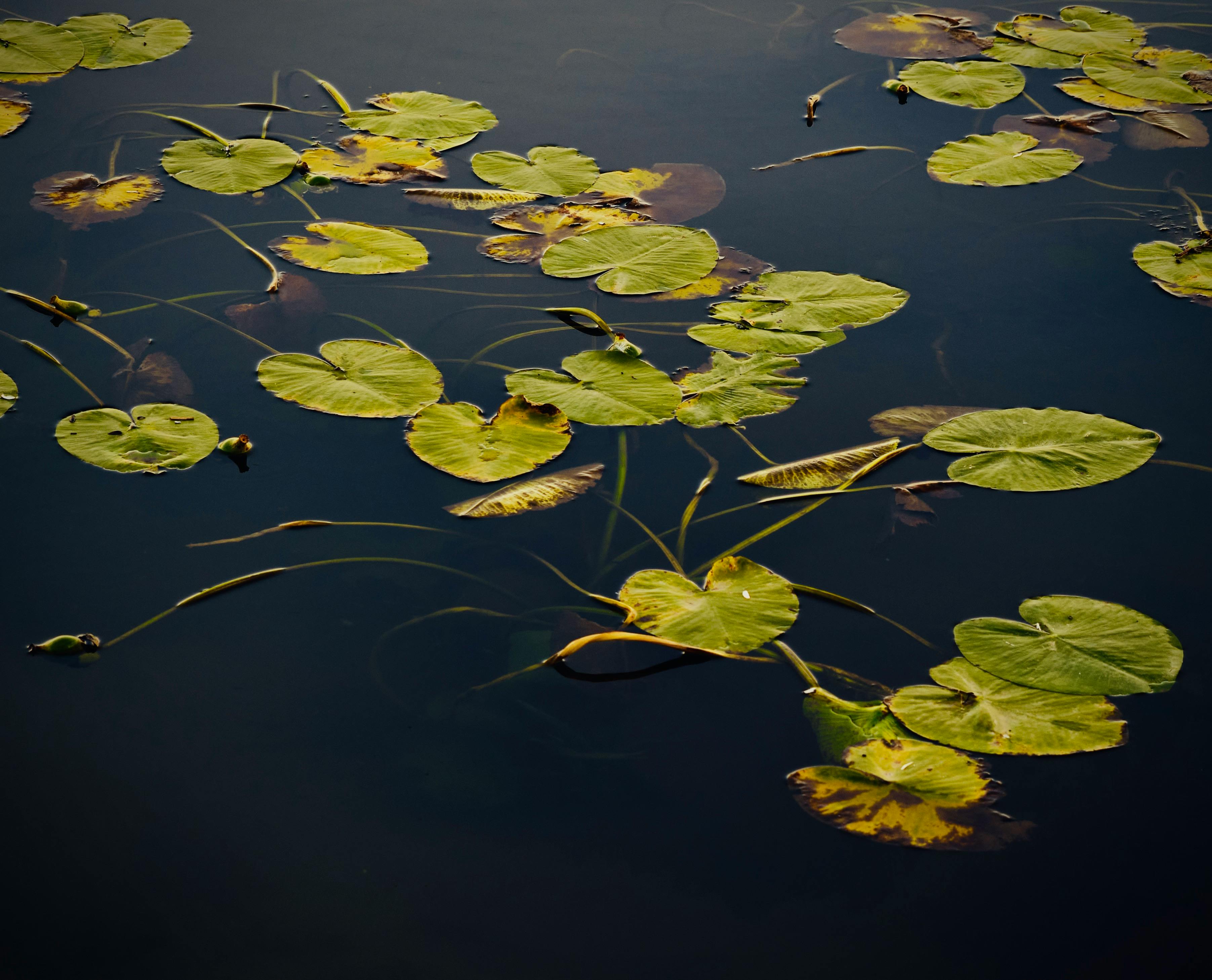Pepper plants are a popular choice for home gardeners due to their easy-to-grow nature and abundance of peppers. However, when your pepper plants start to wilt, it can be a worrisome experience. Wilting can be caused by a variety of factors, including lack of water, too little or too much fertilizer, disease, or insect infestation. In this article, we’ll explore the causes of wilting in pepper plants and provide solutions that can help get your pepper plants back to health.Pepper plant wilting is usually caused by a lack of water or nutrient deficiencies in the soil. Other causes may include overwatering, pest infestation, excessively high or low temperatures, and diseases. Inadequate drainage can also prevent water from reaching the roots of the pepper plants, resulting in wilting.
Underwatering
Wilting in pepper plants can be caused by underwatering. When a pepper plant does not have enough water, its leaves will begin to droop. The plant is unable to absorb the moisture it needs to keep its leaves upright, leading to wilting. The best way to prevent this is to make sure the soil has adequate moisture and is not too dry. Additionally, it is important to water your pepper plants regularly and deeply, so that they are able to absorb enough moisture for their needs.
Overwatering
Wilting can also be caused by overwatering a pepper plant. When there is too much water in the soil, the roots are unable to take up oxygen from the soil. This leads to a lack of oxygen in the leaves, which causes them to wilt and droop. To prevent overwatering, make sure you are not giving your pepper plants more water than they need. Additionally, allow time between watering so that the soil has time to drain and oxygen can reach the roots.
Nutrient Deficiencies
Nutrient deficiencies can also cause wilting in pepper plants. If a plant does not have enough essential nutrients such as nitrogen or phosphorus, its leaves may begin to droop and wilt. To prevent this from happening, make sure your pepper plants are getting all of the essential nutrients they need through fertilizer or compost. Additionally, test your soil regularly for nutrient levels so that you can adjust as needed.
Temperature Stress
Temperature stress can also lead to wilting in pepper plants. If the temperature is too hot or too cold for a long period of time, this can cause stress on the plant and lead to wilted leaves. The best way to prevent this is by making sure your pepper plants are planted in an area with appropriate temperatures for their needs. Additionally, if temperatures become extreme for any length of time, provide additional protection such as shade cloth or mulch around the base of your plant.
Wilting in Pepper Plants
Wilting in pepper plants can be a sign of several different issues. If you notice your pepper plants wilting, it is important to diagnose the problem and take corrective action as soon as possible. Wilting can be caused by inadequate watering, nutrient deficiencies, disease, or pest infestations. To determine the cause of wilting and take appropriate action, there are several steps to follow.
To begin with, check the soil moisture around the plant’s roots. If the soil is dry to the touch and the leaves look wilted, then it is likely that the plant is not receiving enough water. Watering your pepper plants on a regular basis will help keep them hydrated and prevent wilting. If you find that your plant has been over-watered, reduce watering frequency to allow excess water to drain away from the root system of your pepper plant.
If the soil appears moist and the leaves are still wilting, then it could be due to a nutrient deficiency or disease. To check for nutrient deficiencies, test your soil with a pH meter or pH testing kit available at most garden stores or online retailers. A pH level of 6-7 is ideal for peppers; if yours tests lower than 6 or higher than 7, you may need to add fertilizer or lime to adjust the pH levels. Additionally, look for any visible signs of disease such as discolored leaves or spots on stems and foliage which could indicate a fungal infection or bacterial blight infection in some cases.
Finally, inspect your pepper plants for any signs of pests such as aphids or spider mites which could also be causing wilting in addition to other damage such as leaf curling or yellowing foliage. Treating an infestation promptly with an appropriate insecticidal soap spray is key in keeping your peppers healthy and free from pests. In summary, when diagnosing wilting in pepper plants check moisture levels first followed by nutrient deficiencies and disease before treating pest infestations if needed to ensure optimal health for your peppers going forward.

Treatment for Wilting in Pepper Plants
Wilting is a common problem that affects pepper plants. This condition can be caused by a variety of factors, including inadequate watering, too much heat and humidity, or disease. In order to treat wilting in pepper plants, it is important to first identify the cause and then take appropriate action.
If the cause of wilting is inadequate watering, the plant should be watered more frequently and deeply to ensure that the roots are getting enough moisture. If the soil remains dry for too long it can cause the plant to wilt. Additionally, if there is too much heat or humidity present it can lead to wilting. In this case, try misting the leaves with water or providing shade for your plant during hot times of day.
Diseases such as root rot can also affect pepper plants and lead to wilting. Root rot is caused by fungi that attack the roots of a plant and disrupt its ability to absorb water and nutrients from the soil. To treat diseases like root rot, it is important to remove affected plants from your garden and dispose of them properly so as not to spread the disease further. Additionally, fungicides may be applied as a preventative measure if there are other susceptible plants nearby.
Overall, treatment for wilting in pepper plants depends on properly identifying the cause of the problem. Once you have identified this cause you can take appropriate action such as increasing watering or applying fungicides in order to help protect your plant from further damage.
Common Reasons for Wilting in Pepper Plants
Wilting of pepper plants is a common problem faced by many gardeners. Wilting causes the leaves to become limp and can lead to the eventual death of the plant if not treated. The most common causes of wilting in pepper plants include lack of water, too much sun, root rot, insect damage, and nutrient deficiencies.
Not providing enough water is a common cause of wilting in pepper plants. Pepper plants need plenty of water to stay healthy, so it’s important to make sure your plants are getting enough on a regular basis. If you notice that your pepper plants are wilting, it’s likely they need more water.
Too much sun can also be a cause of wilting in pepper plants. Pepper plants prefer partial shade, so if your plant is getting too much direct sunlight it can cause wilting. If you think this may be the reason for the wilting, try moving your plant to an area with more shade and less direct sunlight.
Root rot can also be a cause of wilting in pepper plants. Root rot is caused by overwatering or poor drainage which can lead to fungal growth in the soil around the roots of your plant. If you suspect root rot may be causing your plant’s wilting, try repotting it with fresh soil and cutting away any rotted roots that you find.
Insect damage can also cause wilting in pepper plants. Insects such as aphids and spider mites can suck the sap out of leaves and stems which will eventually lead to wilting. If you see any insects on your plant, it’s important to treat them immediately with an insecticidal soap or other pesticide before they do further damage to your plant.
Finally, nutrient deficiencies can cause wilting in pepper plants as well. A lack of essential nutrients such as nitrogen or potassium can cause leaves to become limp and weak which leads to wilting over time. If you suspect that this might be causing the problem with your plant, try fertilizing it with a balanced fertilizer designed for peppers or adding some composted manure or other organic material to its soil as this will help replenish its nutrient levels naturally.
Improving Soil Quality for Pepper Plants
Pepper plants require good soil quality in order to grow healthy and produce a bountiful harvest. Poor soil can lead to stunted growth, disease, and a smaller harvest. To ensure your pepper plants are producing the best quality peppers, it is important to take the necessary steps to improve your soil. Here are some tips on how to improve soil quality for pepper plants:
• Add Organic Matter: Adding organic matter such as compost and manure can help improve the structure of the soil and add vital nutrients for your pepper plants. Compost is a great way to add organic matter as it breaks down slowly over time and provides a slow release of nutrients.
• Test the Soil: Before you start any type of soil improvement project, it is important to test your soil. Testing will help you determine what nutrients your soil is lacking so that you can apply the appropriate amendments. You can purchase a home soil testing kit or have your soil tested by a professional lab.
• Amend with Nutrients: Once you have determined what nutrients your soil needs, you can begin adding amendments accordingly. Nitrogen, phosphorus, and potassium are three of the most important nutrients for pepper plants so make sure they are added in ample amounts. Other secondary nutrients such as calcium and magnesium are also important but may not need to be added if they are already present in the soil.
• Improve Drainage: Improving drainage is an important step in improving your soil quality. Poor drainage leads to waterlogged soils that can suffocate roots and create an environment where diseases thrive. Adding organic matter such as compost will help improve drainage while also adding vital nutrients.
By following these tips, you will be able to improve the quality of your pepper plant’s soil which will lead to healthier plants and larger harvests. Make sure to test your soil regularly so that any nutrient deficiencies can be addressed quickly and easily with appropriate amendments.

Conclusion
Wilting pepper plants can be caused by a number of factors, from nutrient deficiency to overwatering. In order to prevent wilting in pepper plants, it is important to identify the underlying cause and take the necessary steps to address it. This may include supplementing the soil with additional nutrients, adjusting watering schedules, or improving air circulation around the plant. Additionally, providing adequate light and avoiding extreme temperatures can help ensure that pepper plants remain healthy and productive.
No matter what type of pepper plant you are growing, taking steps to properly care for them is essential for preventing wilting. With the right combination of sunlight, temperature, water and nutrients, you can keep your pepper plants healthy and productive for many years to come.

